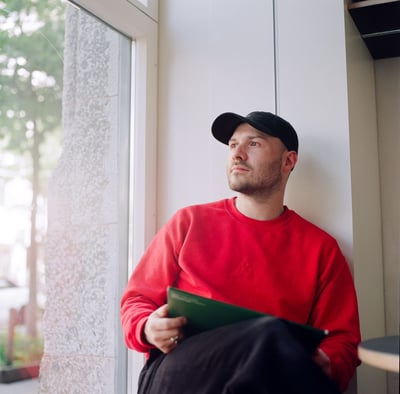Turning your back on Spotify is not an option that everyone can afford
The truth: I would love to take all of my label's music off Spotify. Unfortunately, that's not a realistic measure at the moment. But something is moving - slowly.

The discussion about Spotify and the company's bad treatment of artists goes into another round. When DJ and producer Skee Mask announced that all of his music (with the exception of some remixes and compilation contributions) had been taken down from the Swedish platform, I was not surprised. The artist from Munich has spoken openly about his problems with Spotify in the past.
— SKEE MASK (@sk33mask) January 2, 2022
I often talk to other music label people about streaming. Most of the time, people are against it and simply refuse to put their music on any streaming platform. "Spotify" is just a synonym for this evil technology. But not only the labels, but also the artists I deal with are usually not very fond of streaming services in general. No surprise as most of them has never received a cent from this corner of the industry. Perhaps it is not wrong to add that not many in our scene earn anything from their music. Talking about earning money is therefore nonsense.
I try to see things pragmatically. In discussions, we usually come to a common ground on the subject. Because it is by no means the case that I am satisfied with what the streaming services give in return for being able to make music available to the labels on their platform (especially since the labels are excluded from many features). The common ground is usually that streaming is not going away anytime soon and that the service itself is not the problem, it's the way the companys treat the artists. So we have to accept it somehow and get the best out of it.
We need to tackle the discussion in such a way that we ask: What do we give, what do we get in return and what happens to what we have given?
For labels and artists, streaming services provide a platform to connect with listeners around the world. Being in these databases means that the music is there in the consciousness of the majority of people with internet access. And that's what keeps me on these platforms, including Spotify. With my label, I want as many people as possible to discover the music, especially because we release niche music.
With our very limited reach, we don't have the luxury of taking our music off the platforms. We would lose the biggest opportunity for someone to stumble across one of our releases. And honestly, I'm glad we get those few hundred euros a year because we wouldn't get it anywhere else.
So Skee Mask has made a bold move. I will probably buy all his records to support him because I think it's worth supporting artists who stand for their beliefs and take risks. But – even though I wouldn't count him as an artist with a big reach – he can do it because he has enough supporters. He's able to play gigs regularly and his records sell well (I assume). What I'm saying is: he has a stable structure to keep his career going. You could say that he has also reached this point because his music is available on all streaming platforms, but we'll leave that aside for now.
Rather, we want to look at something else. The DJ, producer and label boss Scuba posted this thread in response to the media coverage of the Skee Masks action.
Taking your music off Spotify but leaving it up on YouTube (who pay an even worse royalty rate, without getting started on how damaging the recommendations algorithm is to humanity as a whole) is... well let's just say it's a bit inconsistent.
— Scuba (@ScubaOfficial) January 3, 2022
It draws attention to YouTube and how poorly the video platform handles music rights and pays much less in royalties than Spotify. It is clear that it is not as easy to see the bigger picture as we would like. He points out that it is the system of streaming, not any one company. As one example, he writes: "subscriptions are priced artificially low to gain market share" and adds: "A fair price for a streaming sub might be $30-40 a month. How many people would pay that? None [...]". Here we are – once again – at the responsibility of the customers.
Diversify and cancel your subscription
I think that the majority of artists and labels - especially the DIY labels that work with very limited resources - have to use streaming services like Spotify. At the moment, there is no way around it and as long as consumers don't change their behaviour, nothing will change. Fortunately, there are alternatives to Spotify and other big-tech companies, whether you want to consume music or podcasts. We as consumers can diversify the services we use, even if we have to give up some conveniences but as artists and labels, we should offer the music where we can.
But in any case. With a paid Spotify subscription we support a company whose CEO invests 100 million euros in an IA defence company called Helsing. I cancelled my subscription because of this and I think anyone who doesn't agree with investing money in arms companies should do the same.
Words by Dominik André. He writes about DJ culture, music nerd stuff and sometimes shares thoughts about the music business. He runs the record label Subject To Restrictions Discs.


